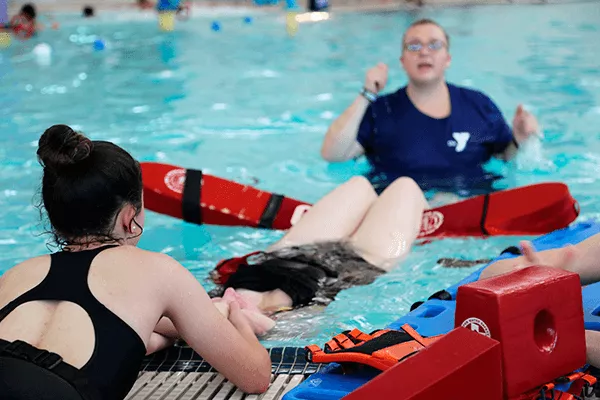How to Prepare for Lifeguard Training Near Me: Using American Lifeguard USA as a Guide
Becoming a lifeguard is not just about donning a red suit and sitting by the poolside; it’s about ensuring safety, saving lives, and being prepared for any aquatic emergency. If you’re looking to become a lifeguard, the first step is to find a reputable training program near you.
American Lifeguard USA is a renowned organization that provides top-notch lifeguard training programs. This guide will help you prepare effectively for lifeguard training and ensure you’re ready to take on the responsibilities of this crucial role.
Understanding Lifeguard Training Requirements
Before diving into the training, it’s essential to know the basic requirements. Generally, candidates must be at least 15 years old and meet specific physical fitness standards. This includes swimming a certain distance within a set time, treading water, and retrieving a brick from the bottom of the pool.
Additionally, you may need prerequisite certifications such as a basic first aid course or CPR certification. These requirements ensure that you have a foundational understanding of emergency response before starting your lifeguard training.
Finding a Training Program
To find the best lifeguard training programs near you, a quick search for “lifeguard training near me” will yield numerous results. Local training programs have the advantage of being accessible and familiar, which can be a significant benefit.
Why Choose American Lifeguard USA?
American Lifeguard USA stands out due to its excellent reputation and accreditation. They offer comprehensive training programs that cover all the essential aspects of lifeguarding, from water rescue techniques to emergency response procedures.
Their programs are designed to be thorough and effective, ensuring that every participant is well-prepared to handle the responsibilities of a lifeguard.
Preparation Steps Before Training
Physical conditioning is a crucial aspect of preparing for lifeguard training. Regular swimming practice to improve your speed and endurance is essential. Focus on swimming different strokes and distances to build overall aquatic proficiency.
Essential Skills to Master
During your training, you’ll need to master various skills, including basic first aid, CPR, and water rescue techniques. These skills are vital for responding effectively in emergencies and ensuring the safety of swimmers.
What to Expect During Training
Lifeguard training programs typically include both classroom sessions and practical water sessions. In the classroom, you’ll learn about safety protocols, emergency response techniques, and the legal aspects of lifeguarding. Practical sessions will involve hands-on training in water rescue, CPR, and first aid.
Physical Fitness and Endurance
Training drills and exercises will be a significant part of your preparation. Building your stamina through regular exercise will help you endure the physical demands of lifeguard duties.
Mental Preparedness
Being a lifeguard is not just about physical fitness; mental preparedness is equally important. You’ll need to be able to handle stress and make quick decisions in emergencies. Training will help you develop these skills, but mental conditioning and staying calm under pressure are crucial.
Equipment and Gear
Investing in the right gear is important for any lifeguard. This includes a high-quality swimsuit, a whistle, a rescue tube, and a first aid kit. Proper maintenance of your equipment ensures it’s always ready for use when needed.
Lifeguard certification is essential for anyone looking to work as a lifeguard. It involves training in water rescue, CPR, first aid, and emergency response. Certification ensures you have the skills needed to keep swimmers safe and respond to emergencies effectively.
Finding Certification Programs
To find a certification program near you, search online for “lifeguard certification near me.” Local community centers, swimming pools, and organizations like the American Red Cross and YMCA often offer these courses. American Lifeguard USA is another reputable provider with comprehensive programs.
Requirements and Prerequisites
Typically, candidates must be at least 15 years old and pass a swimming skills test. You may also need to complete prerequisite courses in first aid and CPR before beginning lifeguard training.
Training Components
Lifeguard certification programs include both classroom instruction and practical water-based training. You’ll learn about rescue techniques, surveillance, and emergency protocols. Practical sessions will test your ability to perform rescues and provide first aid in real-world scenarios.
The Training Environment
Lifeguard training can take place in various environments, such as pools, lakes, or beaches. Each setting has unique challenges, and it’s essential to adapt your skills accordingly. Training in different environments can prepare you for the diverse situations you might encounter as a lifeguard.
Certification Process
To become a certified lifeguard, you’ll need to pass both written exams and practical assessments. These evaluations test your knowledge and skills in lifeguarding techniques and emergency response.
Post-Training Steps
After completing your training, continuing education is vital to keep your skills sharp and stay updated on the latest safety protocols. Joining professional lifeguard networks can provide support and opportunities for further development.
Tips for Success
Effective time management and leveraging peer support are key to succeeding in your training and career as a lifeguard. Building a network of fellow lifeguards can provide valuable insights and encouragement.
Also Read About: Always Wanted to Be: Nearby Lifeguard Certification
Conclusion
Embracing the role of a lifeguard means committing to the safety and well-being of others. With the right training and preparation, you can become a skilled and confident lifeguard, ready to make a difference. Remember, ongoing learning and dedication are crucial to maintaining your effectiveness in this vital role.


